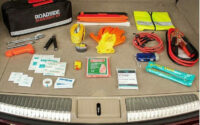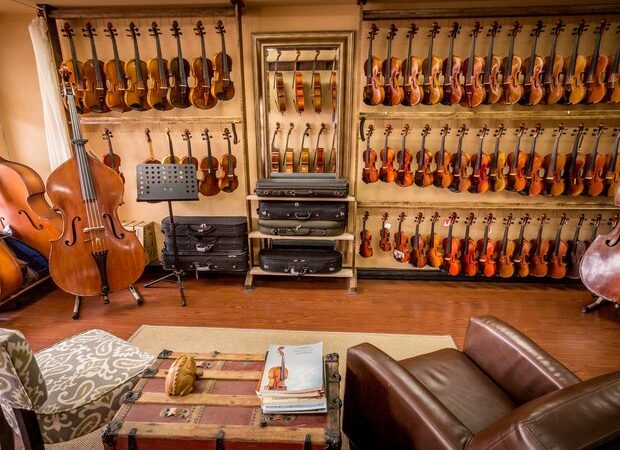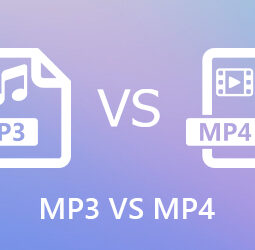We all have the ability to prioritise our lives based on our underlying value systems. Therefore, we use our resources including time, energy and money. If you aim to become the best possible golfer, you may invest in various opportunities and acquire a well-made set of clubs. The clubs alone could cost you thousands of dollars, but you justify the expense because they improve your performance which, in turn, leads to greater happiness.
Choosing the best instrument would yield the greatest financial returns. It would also mean that the student will have the most success and satisfaction in playing music. Strong quality equipment makes the learning of new skills much easier. It doesn’t matter if the new challenge is learning to play golf or a clarinet-the lower the standard of the equipment used, the more challenging and exhausting the acquisition of skills.
A musical instrument, unlike a lawnmower or toaster, is an extension of the player. The instrument is a very personal object because it basically becomes part of the person playing it. That is why the issue of quality is so relevant in the acquisition of the first instrument. High-quality equipment can help to enhance every level of learner and is particularly important for the advancement of beginners.
As with every other commodity on the market, not all musical instruments are manufactured equally. Quality levels range from absolute garbage to very favorable for the student. To the untrained eye, a toy or imitation product made off-shore in a third world country and marketed as a “store-brand” can look similar to a serious instrument, but in fact it is very different. This is how some retailers trick unsuspecting parents into purchasing less costly and inferior goods. It is for this purpose that parents should equip themselves with information while obtaining an instrument.
If parent want to spend money on the cheapest item possible, they will rarely have to spend money on music again in the future.
The beginner’s task is the most difficult one. Everything is new and no challenge is insurmountable. There are so many physical and mental tasks to master that an inadequate equipment can turn an already challenging process into a series of insurmountable tasks. It is especially true in the case of students preparing to begin their instrumental music training for the first time.
A low quality instrument will confuse the beginner. It will perform poorly and may not stay adjusted; it will have poor tone quality. All of these factors will contribute to a loss of self-confidence and decrease interest in playing sports. An inexperienced student will not have knowledge that their instrument is bad, they will simply think that their instrument is no good and will want to quit. Sadly, when kids quit music, they usually do so for good.
Each year, many students begin instrumental study with enthusiasm and anticipation only to be discouraged by the frustration of playing poorly produced or antiquated instruments that play badly and are incapable of producing a characteristic tone, even when the student is doing everything properly. The list of potential problems inherent in low-level band instruments is nearly infinite and definitely too lengthy to be detailed in this article.
Quality must be your most important factor when searching for a band instrument.
Most of the parents feel intimidated by having to buy something they feel they don’t know about. The good news is that they don’t have to be experts at all. It’s as easy as buying quality. As with every other product, a brand name instrument, bought from a professional dealer, instantly ensures that you have made a smart purchase by purchasing the correct product. There are straightforward steps that can be taken in advance, however, to ensure that beginning band students escape frustration and eventual disappointment that could arise from attempts to learn from unplayable instruments. Parents of prospective music students should take the following action:
Learn about the product you’re going to spend your money on. Call all the stores that deal with wind instruments in your area and ask as many questions as possible. There’s no “dumb question” like that.
Don’t waste your money in a store just because of the way it looks, and it happens to be nearby and convenient. These considerations have little to do with the nature of the instrument or the skill of the staff, and do not generally deliver the highest value for your dollar.
Know that the organization that supplies your school might not be tailored to your own personal needs as a private customer. Purchase just a Brand-Name instrument manufactured by a renowned instrument manufacturer.
Never buy a “No-Name” or “Store-Brand” instrument.
Buy only nearby full-service wind instrument specialists with a reputable on-site repair shop. Never buy from a store that sends repairs to an outside repair facility. These types of stores typically do not have the expertise required to deal with wind instruments. A trained repair technician will still be the most competent person to consult about your instrument.
Buy from experts: a company that sells and services wind instruments only. “General” music stores selling guitars, drums, keyboards and accordions often do not have the experience to know the intricacies of wind instruments.
Buy from a vendor that will be there for you after the sale, and one that offers a good one-year unconditional guarantee on every instrument they offer. Don’t commit yourself too easily. Take your time to consider all of your choices. Be patient, never purchase an instrument from someone who doesn’t know what they’re offering to you.
Do not be frightened by musical instruments. It’s incredible what you can read from one afternoon of study and shopping using the Yellow Pages.
The quality of issue is the driving force behind all of our efforts.
While some parents have enough experience with musical instruments to appreciate the need for high quality, most of them have no background and can easily make a mistake. Parents must understand that the instrument they offer to their child will have a significant effect on the child’s success or failure in the first year of school. This is particularly true for the acquisition of an instrument from a source other than a specialist in wind instruments.
Risky tools include those from a relative or a friend, inexpensive “store-brand” instruments, shopping carts, department store catalogues, pawn shops, flea markets, general music stores, yard sales and, worst of all, attic stores. More often than not, if an instrument is obtained from either of these sources, the student will end up either with an instrument that is of low quality and/or will require costly repairs or one that is not worth fixing at all. A lot of parents who don’t know what they’re buying might end up buying an instrument from someone who doesn’t know what they’re selling. This situation typically ends up being harmful to everyone involved, with the student being most directly and most negatively affected.
Music teachers are, first and foremost, educators and may not be experts in the understanding of the subtleties and intricacy of band instruments. They may not be familiar with all of the various instrument brands and models, and they may not have the expertise required to recognise possible instruments issues that you may have to deal with later. By contacting a Skilled Wind-Instrument Repair Specialist, you can benefit from the expertise and knowledge of a person who deals exclusively with instruments and who can therefore provide you with reliable and accurate details. As with cars, many of us drive, but most of us are not automotive experts or mechanically trained.
Where the instrument is purchased, it is just as critical as the instrument that is purchased.
The most obvious way of ensuring that an early music student has a high quality and playable instrument is to purchase a new or used instrument from a renowned woodwind and brasswind specialist who is also a skilled band instrument repair technician. The repair technician would have the requisite skills to assess any instrument based on his/her experience in the repair of hundreds of similar instruments. It is also important to note that any repair technician who is proud of his/her work and a reputation to maintain can only sell professional instruments and a perfect playing condition. A repair technician will send you a good warranty, and he/she will be there for you if problems occur with your instrument.
“No-name” “store-brand” or “off-brand” instruments are typically so badly designed and constructed that they can never perform at the “Brand-Name” stage. Invoking the old proverb, ‘You can’t make a silk purse out of the ear of a sow.’ In other words, a badly designed instrument will still perform poorly, no matter what steps are taken to enhance it. The bottom line is that a “low-quality” instrument would do more harm than good to the student, reducing the student’s probability of success.
At any opportunity, parents should be encouraged to acquire the best student tool they can afford. Their children will be thanked-musically-every time they perform. Most importantly, music is going to stick with them for the rest of their lives.










